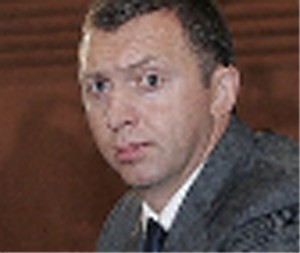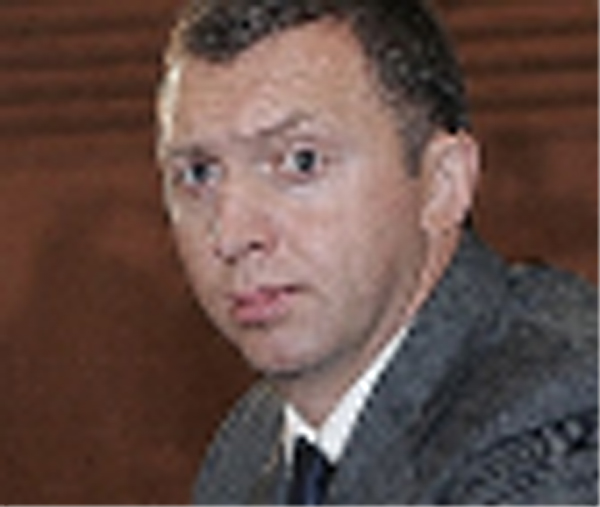MOSCOW, (Reuters) – Russian metals businessman Oleg Deripaska, trying to restructure billions of dollars in debts owed to Western banks, said he does not need financial help from the state.

Deripaska controls the world’s largest aluminium producer United Company RUSAL [ORALM.UL and has been in talks with Western and Russian banks to restructure billions of dollars of debt. RUSAL has about $14 billion in bank debt.
RUSAL hopes to sign an agreement at the start of March on a moratorium of payments on the principal of its debt, he said, and talks are taking place with investors who would like to take a stake in the company.
Russia’s richest men, who went on a debt-funded spending spree when the economy was booming, have been badly hit by the economic crisis after the prices of oil, gas and metals tumbled.
The state has lent Deripaska $4.5 billion to help him refinance western loans but Russia’s leaders have been sending conflicting messages about how much help they are prepared to give the 41-year-old businessman.
“The state should be left alone. We do not need financial help from the state,” Deripaska told reporters late on Saturday. His comments were embargoed for release yesterday.
“We on the contrary are striving to return the debt to it (the state) and already have a mechanism,” he said.
Deputy Prime Minister Igor Sechin has said Deripaska has received unprecedented state support and should find a compromise with private banks.
Sechin’s comments contrasted to those of President Dmitry Medvedev who said on Friday he agreed with Deripaska that rivalries between different groups should not be allowed to lead to the collapse of a whole group of companies.
“This is a crisis the likes of which our economy and the world economy has not seen in more than 100 years,” Deripaska said.
Deripaska, thought to be Russia’s most indebted man, said RUSAL had a mechanism to restructure debts.
“RUSAL hopes to sign an agreement at the start of March on a moratorium of payments on the principal of the debt. Then we will have three to four months to agree about restructuring,” Deripaska said at RUSAL’s headquarters in Moscow.
“Banks not only know and like RUSAL but they must earn money … After the crisis there will remain only three centres for aluminium production — Russia, the Middle East and China — and the banks understand this.”
Deripaska denied reports his debts total about $30 billion, saying the figure “had nothing in common with reality”.
He declined to give an exact figure for his total debt though he said the debt of his holding company, Basic Element, was less than $1.5 billion.
RUSAL owes another $2.8 billion to Russian businessman Mikhail Prokhorov, part of a cash and equity payment for Prokhorov’s 25 percent stake in mining company Norilsk Nickel. Prokhorov is a RUSAL shareholder.
Deripaska said talks were taking place with investors who would like a stake in RUSAL.
“We have investors which have long sought to become shareholders in RUSAL. We are holding negotiations about this,” he said. “It will be possible to speak about this only after signing an agreement on a moratorium on (principal debt) payments with the banks.”
Deripaska, who flourished as a commodity trader in the chaos that followed the fall of the Soviet Union, rose to be ranked as Russia’s richest man last year with an empire stretching from airports to cement production.
But he has since been forced to divest assets in Canada and Germany, and Russia’s Finans magazine said this month his worth had dropped to $4.9 billion from $40 billion last year.

